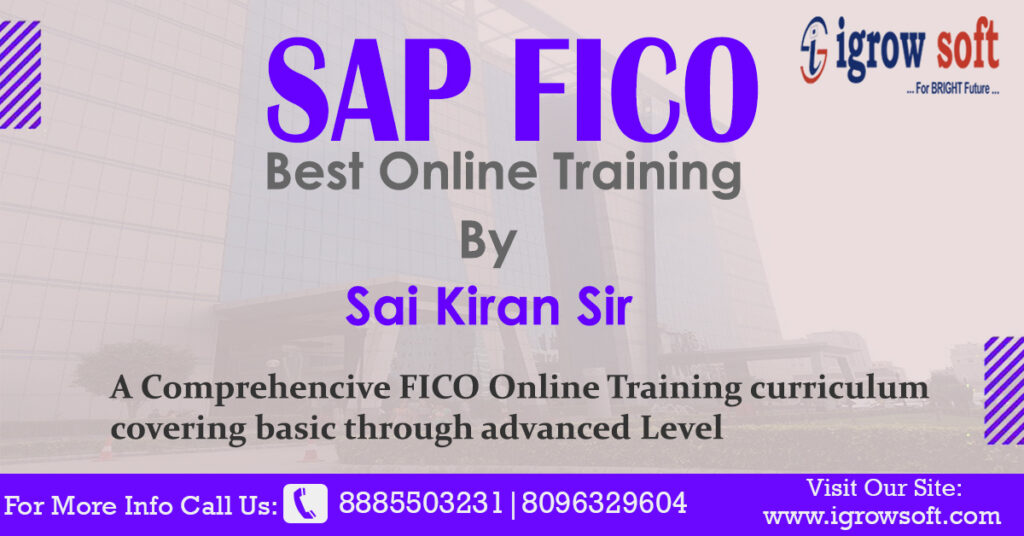
Functionalities of SAP FICO
General Ledger Accounting (FI-GL):
This is the core component of SAP FICO, where all financial transactions of an organisation will be recorded. It includes things such as a chart of accounts, journal entries, balance sheet, and profit and loss statements.
Accounts Payable (FI-AP):
module manages the organisation’s vendor transactions, including processing the invoices, making payments,and managing credit memos, and performing vendor accounts to reconciliations.
Accounts Receivable (FI-AR):
It handles customer transactions which will be generating invoices, managing incoming payments, and which will be processing credit memos, and reconciling customer accounts.
Asset Accounting (FI-AA):
Asset accounting manages an organisation’s fixed assets throughout their lifecycle, including acquisition, depreciation, retirement, and disposal. It helps in tracking the value of assets and complying with accounting standards.
Bank Accounting (FI-BL):
This module deals with managing bank transactions, including electronic bank statements, bank reconciliations, and cash management.
Controlling( CO)
The controlling module complements fiscal accounts by furnishing tools for planning, reporting, and covering an organisation’s costs and earnings. It includes factors similar as cost centre account, internal orders, profitability analysis, and product going .
Profitability Analysis(CO-PA)
It allows organisations to assay their profitability grounded on colourful confines similar as products, guests, regions, or business parts. It helps in relating the most profitable areas of the business and making informed opinions.
Financial Supply Chain Management (FSCM):
General Ledger (GL): Learn how to manage financial accounting data for various accounts, including charts of accounts, posting periods, and posting documents.
Accounts Payable (AP): Understand the processes involved in managing vendor invoices, payments, and reconciliation.
Accounts Receivable (AR): Learn about customer invoicing, credit management, and cash application processes.
Asset Accounting (AA): Explore the management of fixed assets, including asset master data, depreciation, acquisitions, and disposals.
Integration with other SAP modules:
SAP FICO instrument integrates with other SAP modules similar as Deals and Distribution( SD), Material Management( MM), Production Planning( PP), and Human Capital Management( HCM) to give a comprehensive view of the organisation’s fiscal conditioning.
These are some of the main factors and functionalities of SAP FICO.
getting certified in SAP FICO( Financial Accounting and Controlling) generally involves several ways:
Understanding Prerequisites:
Before pursuing an instrument, it’s important that you understand the pre-requisites. generally, you need some position of education or experience in finance or accounting. While not obligatory, having previous knowledge of SAP software can be profitable
Training;
Enroll in SAP FICO training courses offered by SAP Education or dinkum training mates. These modules can be taken online. Training covers colorful aspects of SAP FICO, including configuration, performance, and operation.
Hands-On Experience:
Gain practical experience by working on SAP FICO projects or simulations. Practical knowledge is crucial for understanding real-world applications of SAP FICO.
Exam Preparation:
Prepare for the certification exam by studying the SAP FICO curriculum and using study materials provided by SAP Education or other reputable sources. Practice exams can help assess your readiness for the actual certification exam.
Instrument test:
Schedule and take the SAP FICO instrument test. The test generally consists of multiple- choice questions and simulations to test your knowledge and chops in SAP FICO
Passing Score:
Achieve the fleeting score needed by SAP to gain instrument. The fleeting score may vary depending on the specific instrument test.
Instrument
Upon passing the test, you will be admitted to a sanctioned SAP instrument in SAP FICO. This instrument demonstrates your proficiency in SAP FICO online training institutes and can enhance your career openings in finance and account places.
Continuing Education:
Keep your SAP FICO certification up-to-date by participating in continuing education programs and staying informed about updates and advancements in SAP technology.
It’s important to note that the certification process and requirements may vary depending on your location and the specific certification track you choose within SAP FICO. Be sure to research and understand the requirements specific to your situation.

